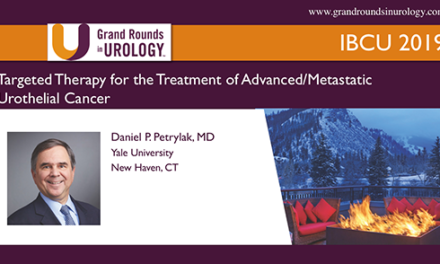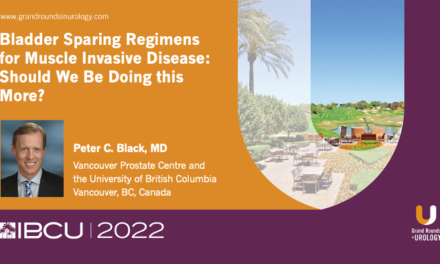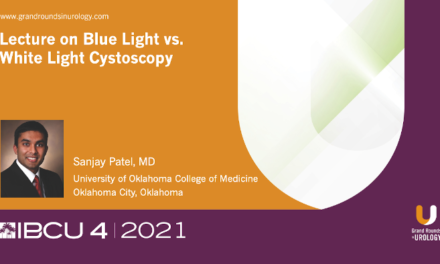Donna E. Hansel, MD, PhD, presented “Pathology of Urothelial Cancers” at the 6th International Bladder Cancer Update on November 19, 2022, in Scottsdale, Arizona.
How to cite: Hansel, Donna E. “Pathology of Urothelial Cancers” November 2022. Accessed Dec 2022. https://grandroundsinurology.com/pathology-of-urothelial-cancers/
Pathology of Urothelial Cancers
Donna E. Hansel, MD, PhD, delivered a compelling presentation on the pathology of urothelial cancers, emphasizing the complexity and heterogeneity of urothelial carcinomas and underscoring the critical need for accurate pathological evaluation in guiding treatment decisions.
She detailed the molecular subtypes of urothelial cancers, explaining their distinct genetic and epigenetic profiles. This classification aids in predicting treatment responses and patient outcomes. Dr. Hansel highlighted the importance of recognizing variant histologies, such as micropapillary, plasmacytoid, and neuroendocrine subtypes, which have unique clinical behaviors and therapeutic implications.
The presentation also covered the role of biomarkers in urothelial cancer, including FGFR3 mutations and PD-L1 expression, which are pivotal in the era of targeted therapies and immunotherapy. Dr. Hansel provided insights into the latest advancements in diagnostic techniques, such as next-generation sequencing and liquid biopsies, which are enhancing the precision of urothelial cancer diagnosis and monitoring.
About the 6th International Bladder Cancer Update:
The International Bladder Cancer Update (IBCU) is a CME conference focused on the diagnosis and treatment of bladder cancer. The conference offers medical professionals an opportunity to listen to updates from, and interact with, expert international faculty to improve knowledge and determine best treatment practices to improve patient outcomes. IBCU encompasses expert lectures, interactive discussions, a panel roundtable, debates, and case presentations. It is physician-led, multi-supported, and designed for urologists, urologic oncologists, and other healthcare professionals involved in the treatment of bladder cancer.
For further educational activities from this conference, visit our collection page.
ABOUT THE AUTHOR
Donna E. Hansel, MD, PhD, is the Division Head of Pathology and Laboratory Medicine at the University of Texas MD Anderson Cancer Center in Houston, Texas. Previously, Dr. Hansel served as the Chair of Pathology at Oregon Health & Science University (OHSU) in Portland, Oregon. In 2013, Dr. Hansel was appointed Professor of Pathology and Chief of the Division of Anatomic Pathology at the University of California, San Diego. Dr. Hansel joined the Cleveland Clinic Anatomic Pathology Staff as Assistant Professor in 2006 as a subspecialty genitourinary pathologist and was promoted to Associate Professor in 2010.
Dr. Hansel completed a bachelor of science degree in biology at Johns Hopkins University, graduating Phi Beta Kappa. She subsequently completed the MD-PhD Medical Scientist Training Program, pathology residency, and urologic pathology fellowship at the Johns Hopkins University School of Medicine.
Dr. Hansel has authored over 170 peer-reviewed publications, edited or authored five textbooks on urologic pathology and biospecimen repositories, and participated in more than 100 national or international talks on bladder cancer. She has participated in the kidney-urinary tract panel for the 8th Edition Cancer Staging Manual of the American Joint Committee on Cancer (AJCC) and contributed to the 5th edition of the WHO Classification of Tumours of the Urinary System and Male Genital Organs. In addition, Dr. Hansel is on the editorial board of the American Journal of Surgical Pathology, Advances in Anatomic Pathology, American Journal of Pathology, Histopathology, and Archives of Pathology & Laboratory Medicine where she serves as Deputy Executive Editor. Dr. Hansel has mentored over 40 residents, graduate students, and postdoctoral fellows while remaining active in clinical science and overseeing a research laboratory focused on invasive cancer mechanisms.




